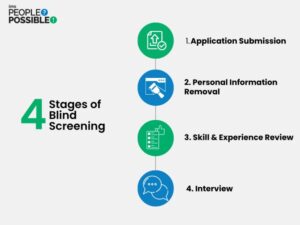
Explore key UK healthcare recruitment challenges and modern staffing solutions, including offshore recruitment support for sustainable hiring.
Blind screening is an innovative recruitment strategy designed to minimise unconscious bias and promote diversity in the hiring process. It involves removing personally identifiable information from job applications and candidate materials before they are reviewed by hiring managers and recruiters.
The primary objective of blind screening is to create a more equitable and objective candidate evaluation process. By concealing demographic details such as name, age, gender, race, and educational institution, organisations can focus solely on a candidate’s qualifications, skills, and professional capabilities.

Organisations typically implement blind screening through various methods:
Blind screening offers significant advantages to both employers and job seekers. For organisations, it promotes a more diverse and inclusive workplace by ensuring candidates are evaluated purely on their merits. Candidates benefit from a fair evaluation process that judges their capabilities rather than personal characteristics.
While blind screening is a powerful tool for reducing bias, it is not without limitations. Some nuanced aspects of a candidate’s background might be overlooked, and certain roles may require more contextual information for comprehensive evaluation.
Successful blind screening requires careful planning, robust technology, and a commitment to fair hiring practices. Organisations must develop comprehensive strategies that balance anonymity with the need for holistic candidate assessment.

Explore key UK healthcare recruitment challenges and modern staffing solutions, including offshore recruitment support for sustainable hiring.

Explore how automation enhances healthcare staffing in 2026, and why human expertise and offshore support remain critical for U.S. firms to scale smarter.

Explore how automation enhances healthcare staffing in 2026, and why human expertise and offshore support remain critical for U.S. firms to scale smarter.